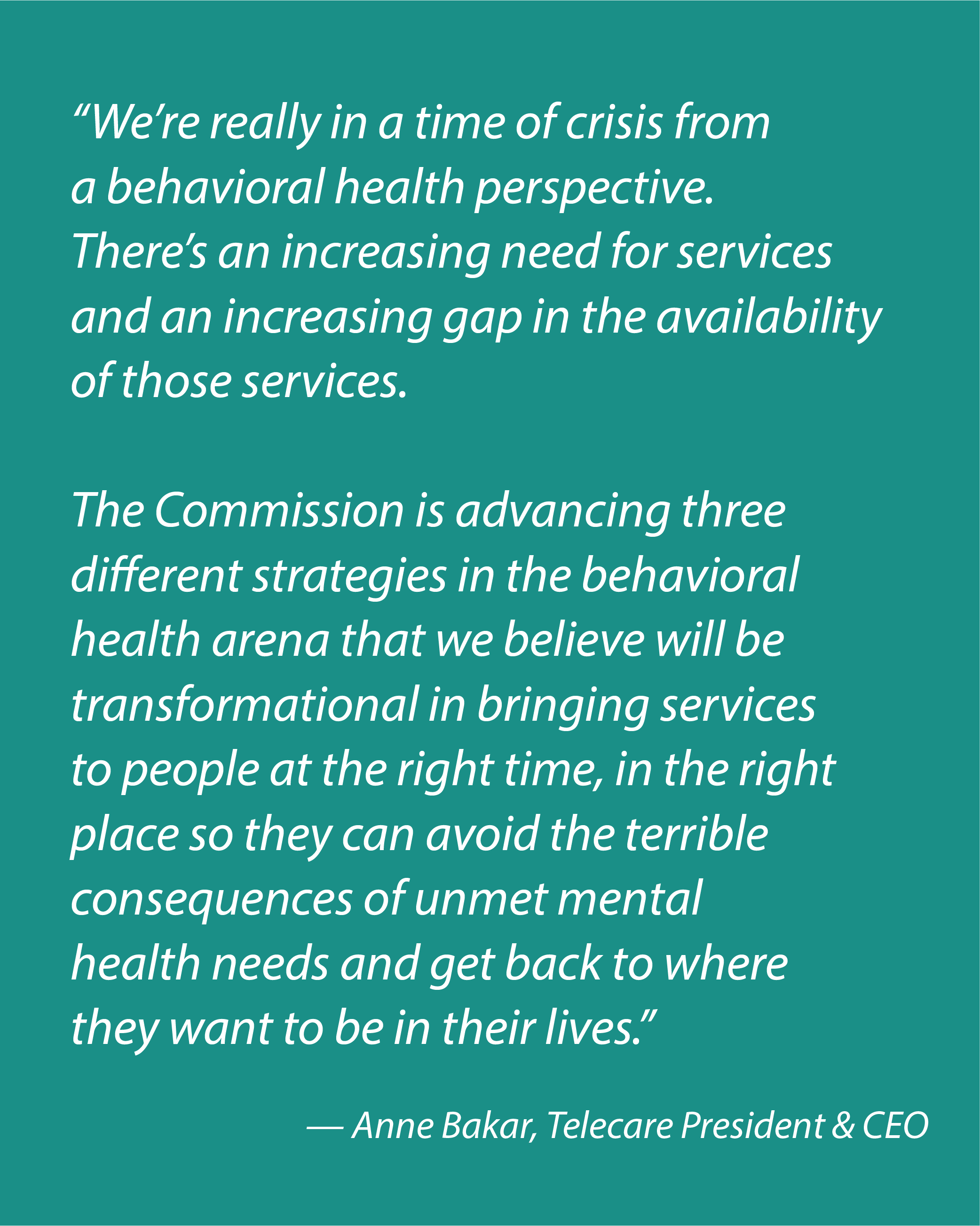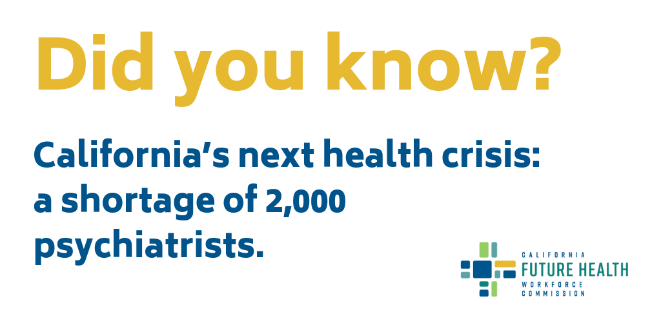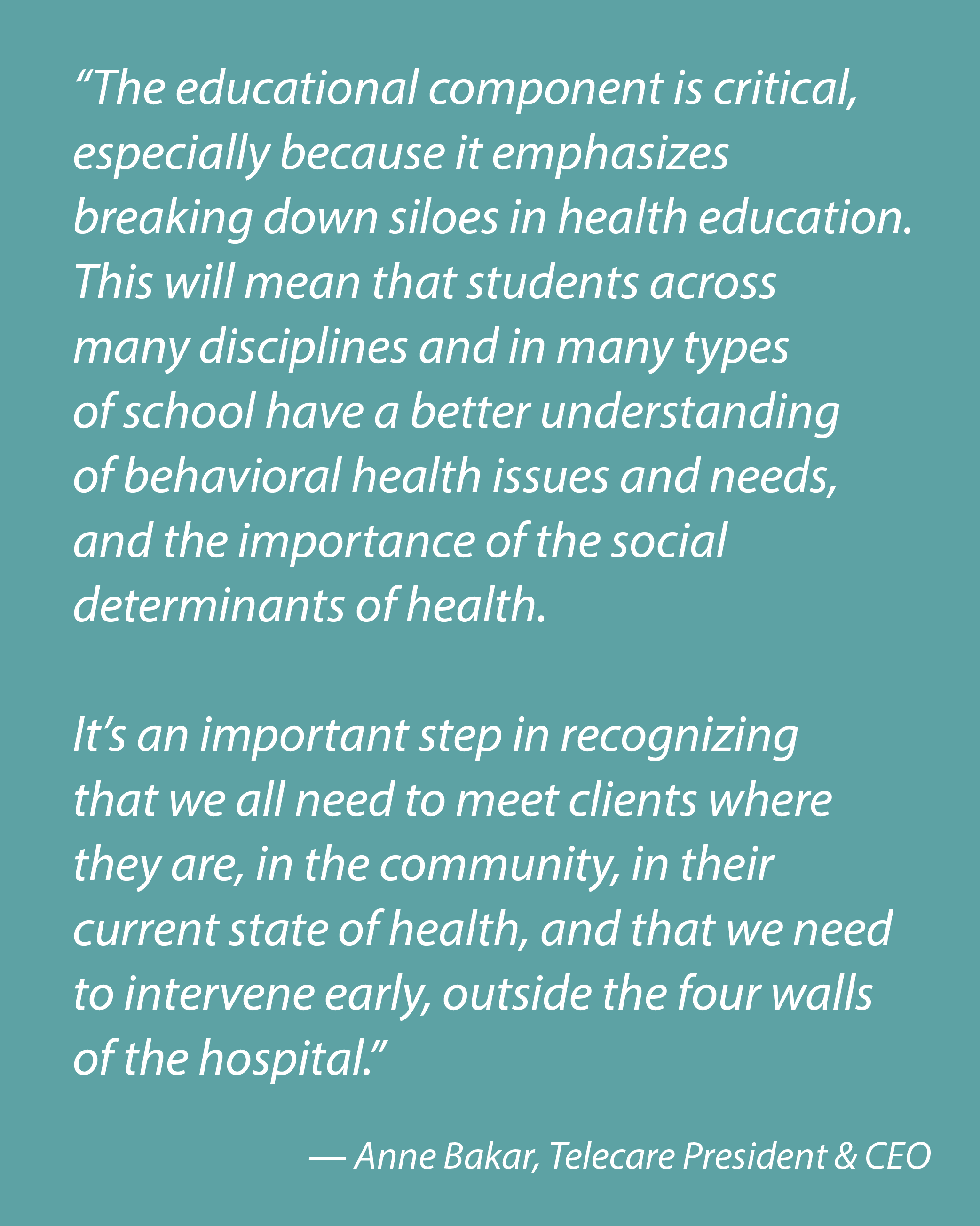California Workforce Commission Final Report
/Anne Bakar, Telecare’s President and CEO, had the honor of being named a Commissioner of the California Future Health Workforce Commission at its inception in late 2017.
She is the only commissioner who brought a dedicated behavioral healthcare perspective to the Commission. In that capacity, she successfully advocated for specific behavioral health workforce recommendations that were included among the Commission’s final top ten recommendations.
These include the following final recommendations:
Expand the number of psychiatric residency positions in the state. This would enable California to add 2,202 psychiatrists to its workforce by 2030. This effort is part of a larger priority to expand residency positions for both primary care and psychiatry. The investment required to complete this work is estimated at $1.562 billion over ten years. In ten years, California is currently expected to have 41% fewer psychiatrists than it needs. From a behavioral health perspective, this effort will be critical in helping California fill the gap in care with psychiatrists and other prescribers.
Develop a psychiatric nurse practitioner program that recruits and trains providers to serve in underserved rural and urban communities. This would enable California to provide treatment to more than 350,000 patients over five years.
Scale the engagement of peer providers through certification, training, and reimbursement. This would enable people with mental illness and substance use disorders to get support from people with lived experience, which supports better outcomes and promotes recovery and self-sufficiency.
What’s Next for the Workforce Commission and the Final Recommendations?
The Commission has made its report (executive summary here) available to California’s Governor, legislators, media, and key stakeholders across many diverse systems, from education to healthcare, and beyond. Workforce Commissioners, including Anne, continue to be actively involved, advocating for the Commission’s recommendations around California.
The Commission is actively supporting and advocating for important pieces of legislation that can advance the identified behavioral health priorities. These include:
SB 10 (Senator Jim Beall): Establishing a peer certification process to enable people with lived experience of mental illness to help others
AB 890 (Assemblymember Jim Wood): Letting nurse practitioners do the work they have been trained to do
Finally, the Commission has also recommended establishing a statewide infrastructure, starting in 2019, to implement the recommendations in partnership with stakeholders, monitor progress, and to adjust as needs and resources change.
What’s Next for Telecare?
In her role as President and CEO of Telecare, Anne Bakar leads a hands-on provider organization, with more than 3,700 staff members serving nearly 30,000 individuals per year with complex behavioral health needs. In this capacity, Anne has also been leading Telecare’s efforts to implement strategies to build and enrich its own health workforce.
Some of these efforts include:
Establishing a physician services organization to help recruit and manage our workforce of psychiatrists, nurse practitioners, and other medical staff.
Implementing telepsychiatry as a tool to help ensure psychiatric coverage for our programs, which has been especially helpful in more rural areas
Establishing a workforce development plan to help Telecare hire more than 2,000 new staff by 2020. Our plan includes not only hiring new staff, but cultivating leadership and growth for our existing staff at all levels.
Articulating and sharing our organization’s vision for diversity and inclusion.
Working to meet our goal of having two peer staff in all Telecare programs by 2020.
Creating a peer support job family and career ladder to foster personal growth into diverse roles from peer recovery specialists to peer teams leads, and more.
There is more work to do in the years ahead, but we are encouraged and optimistic to be taking steps toward improved care, increased access, and a more skilled, diverse staff who can deliver that care with compassion, confidence, and cultural humility.
More Information:
CA Future Health Workforce Commission
Social Determinants of Health
Steinberg Institute Legislation








